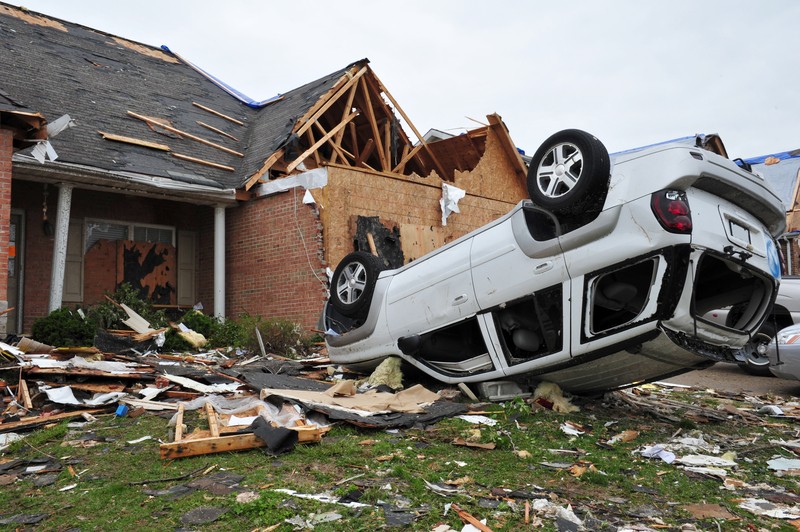Going through a natural disaster takes an emotional toll on everyone involved. Remember that although you might feel the need to get started on the clean up and assess the damage mother nature has caused, be aware that your mental state could cloud your judgement. Before preforming an action, ask yourself: Is this safe? Never work alone, and always be sure you have communication channels available, i.e. walkie-talkie, cell phone, megaphone, etc The last thing you want to do is place yourself or a loved one in a situation where you are stuck, or hurt, and unable to get help.
A study of injuries after a tornado in Marion, Illinois, showed that 50 percent of the tornado-related injuries were suffered during rescue attempts, cleanup, and other post-tornado activities. Protecting yourself and your family requires promptly treating any injuries suffered during the storm and using extreme care to avoid further hazards.
General Safety Precautions
Here are some safety precautions that could help you avoid injury after a tornado:
- Continue to monitor your battery-powered radio or television for emergency information.
- Be careful when entering any structure that has been damaged.
- Wear sturdy shoes or boots, long sleeves, and gloves when handling or walking on or near debris.
- Be aware of hazards from exposed nails and broken glass.
- Do not touch downed power lines or objects in contact with downed lines. Report electrical hazards to the police and the utility company.
- Use battery-powered lanterns, if possible, rather than candles to light homes without electrical power. If you use candles, make sure they are in safe holders away from curtains, paper, wood, or other flammable items. Never leave a candle burning when you are out of the room.
- Never use generators, pressure washers, grills, camp stoves, or other gasoline, propane, natural gas, or charcoal-burning devices inside your home, basement, garage, or camper—or even outside near an open window, door, or vent.
- Hang up displaced telephone receivers that may have been knocked off by the tornado, but stay off the telephone, except to report an emergency.
- Cooperate fully with public safety officials.
Inspecting the Damage
- After a tornado, be aware of possible structural, electrical, or gas-leak hazards in your home.
- Contact your local city or county building inspectors for information on structural safety codes and standards.
- They may also offer suggestions on finding a qualified contractor to do work for you.
- In general, if you suspect any damage to your home, shut off electrical power, natural gas, and propane tanks to avoid fire, electrocution, or explosions.
- If it is dark when you are inspecting your home, use a flashlight rather than a candle or torch to avoid the risk of fire or explosion in a damaged home.
Safety During Clean Up
- Wear sturdy shoes or boots, long sleeves, and gloves.
- Learn proper safety procedures and operating instructions before operating any gas-powered or electric-powered saws or tools.
- Clean up spilled medicines, drugs, flammable liquids, and other potentially hazardous materials.
Extremely useful information provided by the Center for Disease Control and Prevention. Wearing safe shoes and having gloves are a #1 necessity when doing any sort of disaster relief clean-up. You can normally find inexpensive gloves at your local hardware store. If all else fails, most grocery stores have gloves in the gardening and kitchen sections. They may not be as durable as you want them to be, but they'll come in handy last minute if you don't have your go-to heavy-duty gloves on hand.
Have You Been a Part of a Natural Disaster Relief Team?
If you have helped clean up after a natural disaster that effected you or helped assist in a volunteered effort, we would love to hear your story. Any tips, information or guides that proved beneficial, etc.
